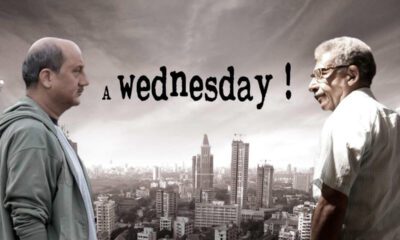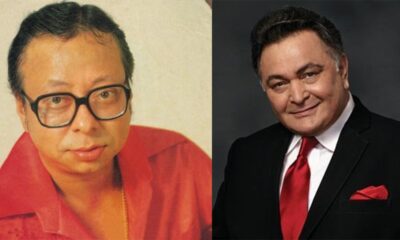Exclusive Premium Content
End Of The Century Is A Gay Romance With A Difference

End Of The Century(Spanish, Amazon Prime Video)
Starring Juan Barberini,Ramon Pujol
Directed by Lucio Castro
Rating: ** ½
Strong powerful films on queer love have become the order of the day. Call it by any other name, love is love, gay or not. In the films that have emerged since the success of Call Me By Your Name, same-sex couples are treated in the same way and on the same wave-length as heterosexual lovers.
In this Spanish-langauge film the two men could be Audrey Hepburn and Gregory Peck in Roman Holiday for all we care.The first 20 minutes has no dialogues at all as Ocho(Juan Barberini) holidays alone in Barcelona. We can see he isn’t enjoying his solitude. Soon he has company, male company, Javi(Ramon Pujol). When after some heavyduty sex they get down to talking they discover that had known each other twenty years ago.
Here is where the rather slender subtle and stirring sensual drama gets all messy and selfconscious. We see Ocho and Javi meeting up when it was still the last century and mores were more immovable.So we see both Ocho and Javi hiding their sexuality pretending to have steady girlfriends, and so on and so forthrtight.
While this long flashback segment has a brilliantly unrehearsed dance of seduction between the two men where they both let go of their inhibitions, the basic idea of the couple meeting up after 20 years is layered with loopholes. Absurdly, they both look exactly the same twenty years earlier. Maybe the Argentinian filmmaker wants to tell us love is timeless. But he forgets, youth is not.
Towards the end the film takes a surreal turn where Ocho imagines a life with Javi , little daughter and all, based on what Javi had told Ocho about his life with his “husband” and daughter.
The End Of The Century strings together a series of interesting encounters between the two men who are clear on one thing: they cannot get into a permanent relationship. If only we cared enough about their future ahead, together or apart. The erratic storytelling doesn’t allow us to feel the burden of Ocho’s or Java’s loneliness. For them that brief encounter in Barcelona twenty years after they first met, is enough. For us, it is regrettably not.
The film goes to absurd levels to show the passage of time as being irrelevant . A black teeshirt with ‘Kiss’ embossed on it makes a vital guest appearance. If that teeshirt is trying to say something, we are not listening.








